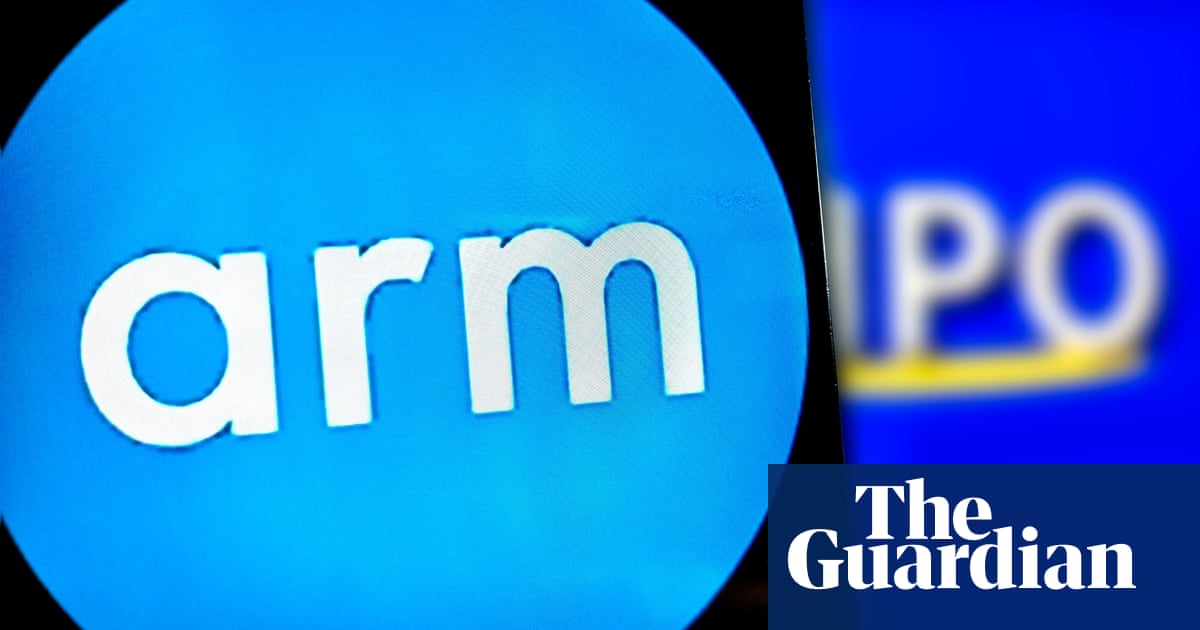
Nvidia’s $40bn (£29.6bn) takeover of the Cambridge-based Arm has collapsed due to insurmountable regulatory hurdles, leaving the British chip designer to seek a stock market flotation in the next year as an alternative.
The deal, which would have been the largest in the semiconductor industry, had become mired in red tape on both sides of the Atlantic and in China and had also faced fierce opposition from players within the industry since it was announced in September 2020.
Japan’s Softbank acquired Arm – which has more than 500 clients that use its chip designs, including Apple, Samsung and Google, in products ranging from iPads and mobile phones to cars and smart TVs – for $32bn in 2016.
In a joint statement, Softbank and Nvidia said they had decided to terminate the deal due to “significant regulatory challenges preventing the consummation of the transaction, despite good faith efforts by the parties”.
The cash and stock deal was worth about $40bn when it was announced 18 months ago, but has dramatically increased to as much as $75bn as Nvidia’s share price has soared.
Softbank moved quickly to announce it is to revert to its backup plan of an initial public offering to cash in on Arm, and will receive a $1.25bn break-up fee from Nvidia.
The chip designer, which employs 6,500 staff including 3,000 in the UK, also announced a management shake-up with the chief executive, Simon Segars, replaced by Rene Haas, head of Arm’s intellectual property unit who previously worked at Nvidia for seven years, to lead the publicly listed company.
“Rene is the right leader to accelerate Arm’s growth as the company looks to re-enter the public markets,” the SoftBank chief executive, Masayoshi Son, said in the statement from Arm. “We will take this opportunity and start preparing to take Arm public, and to make even further progress.”
Nvidia said that despite the failed takeover it would remain a close partner due to Arm’s strategic importance in the global chip industry.
“Arm is at the centre of the important dynamics in computing,” said Jensen Huang, the founder and chief executive of the California-based Nvidia. “I expect Arm to be the most important [computer processing unit] architecture of the next decade.”
The US Federal Trade Commission dealt a hammer blow to the prospect of successful takeover, launching legal action in December to block what it called an “illegal vertical merger” that would give Nvidia too much market power.
Last year, the UK ordered an in-depth investigation into the deal, citing competition and national security concerns, while the EU and China had also raised serious concerns.
SoftBank said on Tuesday that Arm would prepare for a stock market flotation before the end of the financial year to 31 March 2023. While no decision has been made on where to list the company, it is understood that the US is favoured as it generally results in higher valuations for technology stocks.
Many of Arm’s extensive client base said that takeover by Nvidia would end its status as the Switzerland of the semiconductor industry, with the US company able to control the technology and licensing of chip designs to rivals.
In 2018, the US company Qualcomm abandoned its $44bn, two-year pursuit of the Dutch chip maker NXP after failing to secure approval in China, a victim of a trade dispute between Beijing and Washington.












